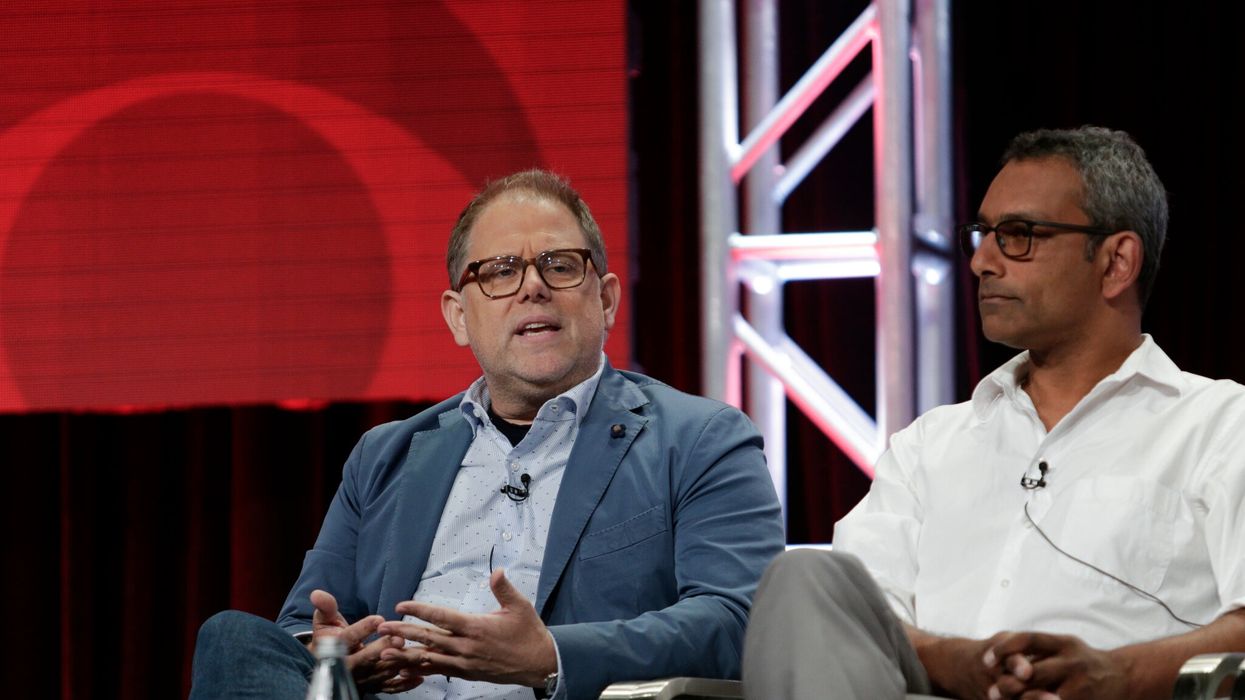New Article Details Showrunner Abuses on CBS Show 'All Rise'
Support staff across Hollywood rally behind the All Rise staff in the wake of toxic workplace allegations.

All Rise is a CBS show about a Black judge in Los Angeles as she deals with lawyers, bailiffs, plaintiffs, defendants, and all the other people surrounding the legal process. But behind the scenes, stories weave a picture of a toxic work environment where the showrunner ruled with an iron fist.
A new article from Salon details the transgressions of showrunner Greg Spottiswood. It tells the tale of a writing staff that complied with Hollywood's yearning for the boosting of marginalized voices, but also shows what it's like when the person in power ignores these people and does whatever he wants.
While the network and show have since parted ways with Spottiswood, the stories of his tenure on the show are worrying, especially an anecdote about a notes call where he allegedly referred to two Black colleagues as "monkeys," and then walked back that statement with, "I didn't mean it like that."
In addition to that, the article portrays disarray and disorganization behind the scenes.
In a statement, Spottiswood denied the allegations, saying, "I created All Rise with the intent of amplifying the power of a Black female lead along with a diverse cast to share with viewers a new POV on a myriad of important issues that our criminal justice system is currently facing. It was essential to me that I collaborate with a diverse group of talented writers and craftspeople to ensure that All Rise was an inclusive and representative environment and that it reflected the city it was set in. I recognize that I was not as successful as I hoped and that my communication style during the creative process sometimes was counterproductive."
But dozens of people stepped forward and talked to Salon, refuting these words.
We tend to think of problematic Hollywood personalities as screamers and harassers, people like Scott Rudin and Harvey Weinstein, but Spottiswood doesn't have anything like that on his record. It sounds like just microaggressions, harmful words, and poor management.
In this article, we hear about the production prepping episodes from outlines instead of scripts, and that things were frequently in disarray as Spottiswood would toss out people's ideas at the last minute and demand story changes without listening to other writers' input.
"Greg made the choice to write a television show about people of color, and hired a room full of people of color who could have elevated and added perspective to the story he chose to tell, despite it not being his lived experience," said Conway Preston in the piece. Preston is a white writer who worked on the first season of All Rise. He continued, "And instead, he all too often denied their input and made their lives miserable every step of the way."
Many of the problems arose because the showrunner refused to listen to his staff. He is a white Canadian man, and they brought a wider array of experiences. As one person told Salon, "It was all so insidious that I think it's hard to convey the gravity of it to people and how bad it made us all feel." The anonymous staffer continued, "It was a lot of backhanded stuff and very polite Canadian degradation."
This backhanded stuff ranges from wondering if cops actually routinely stop Black men without evidence, as well as deleting whole sections of dialogue from Black characters because Spottiswood didn't think their reactions to specific events felt "real."
There was also tension between female writers on the staff and Spottiswood.
"I felt he created an unhealthy environment for women, where female writers were treated like second-class citizens," said a female writer on staff.
And Preston said, "[Spottiswood] would pitch problematic storylines for our female characters—who make up five of our seven leads—and when the female writers took issue with that, he would get very defensive. He would insist that it wasn't a problem."
When all of these came to a head, CBS and Warner Bros. TV replaced Spottiswood as the showrunner, but the damage had already been done. Writers from the first season had jumped ship, they had lost important support staff, and there was no way to change the past.
As the show tries to move forward, it has to overcome the past, even though it has an almost totally fresh staff.
The other huge problem is that it seems like no one learned anything from this venture. Spottiswood was able to do what was right for the optics, but behind the scenes ran a problematic and toxic room that cost people mental health and work in some cases. Even with complaints, people feared retaliation if they went to human resources, and it took the network and production company a long time to act directly.
As Hollywood susses out its toxicity problem, it also needs to address where people can go for accountability.
Got thoughts on that or on this article?
Let us know in the comments.











